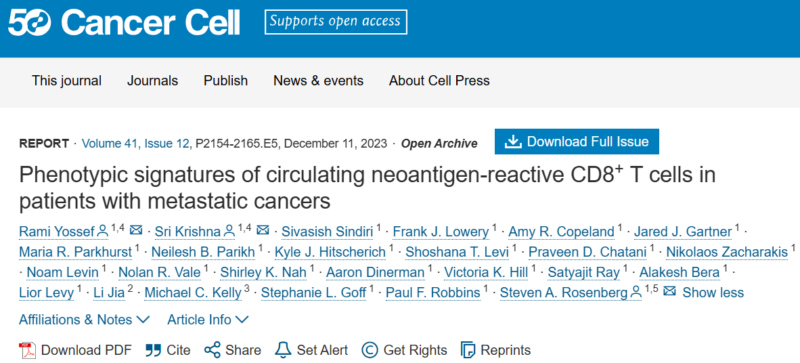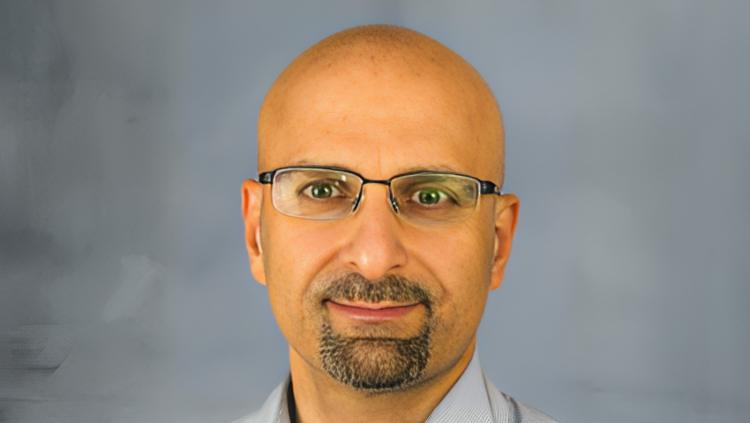Nicholas Restifo, Chief Scientist and Head of R&D at Marble Therapeutics, shared an article by Rami Yossef on LinkedIn:
“A Breakthrough in Personalized Cancer Immunotherapy.
Tumor-targeting T cells in the blood: A noninvasive path to personalized treatments.
Scientists led by Dr. Steven Rosenberg at the NCI have made a groundbreaking discovery: antitumor T cells can be found circulating in the blood of patients with metastatic solid cancers.
These cells are incredibly rare, but thanks to a newly identified molecular signature, they can now be precisely identified—offering a noninvasive alternative to isolating tumor-fighting immune cells.
Why This Matters:
Cell-based cancer immunotherapies, like those pioneered by Dr. Rosenberg’s lab, use a patient’s own immune cells to attack their cancer. Until now, isolating antitumor T cells often required invasive tumor surgeries. This discovery opens up a whole new avenue:
-> Accessible and Scalable Therapies: T cells from blood can be amplified and reprogrammed for therapeutic use, bypassing the need for tumor biopsies.
-> Broader Impact: This approach is effective across multiple cancers, including colorectal, breast, and melanoma.
-> Enhanced Functionality: Blood-derived T cells are less exhausted than their tumor-infiltrating counterparts, increasing their therapeutic potential.
How It Works:
The team used single-cell transcriptomics to decode the genetic “barcodes” of tumor-targeting T cells. This method identified a unique molecular signature that reliably pinpointed antitumor T cells in blood samples from multiple patients.
The authors, including Rami Yoseph (Yossef), Sri Krishna, Frank J Lowery III, Stephanie Goff, and Paul Robbins, found that even at extremely low frequencies (<1% of total circulating T cells), T cells in the blood shared the same tumor-targeting specificity as their tumor-residing counterparts.
What’s Next?
This discovery not only streamlines the process of isolating antitumor T cells but also provides a blueprint for:
-> Engineering T cell receptors (TCRs) for next-gen immunotherapies.
-> Reprogramming healthy T cells to fight cancer more effectively.
As Dr. Rosenberg explains, “Utilizing these results, we can identify T-cell receptors that recognize antigens on common cancers and put them into a patient’s T cells for use in therapy.”
The results confirm theoretical and experimental work from Ira Mellman and other luminaries in the field. It represents a key step toward making personalized cancer immunotherapy more accessible, precise, and effective.
Additional innovations will be needed to create clinically viable therapies from circulating tumor-reactive T cells, which must be greatly expanded to procure enough cells required for therapy. Nevertheless, the paper represents an important advance.
How do you see this breakthrough shaping the future of cancer treatment?
Let’s discuss below!”
Phenotypic signatures of circulating neoantigen-reactive CD8+ T cells in patients with metastatic cancers.
Authors: Rami Yossef, et al.



